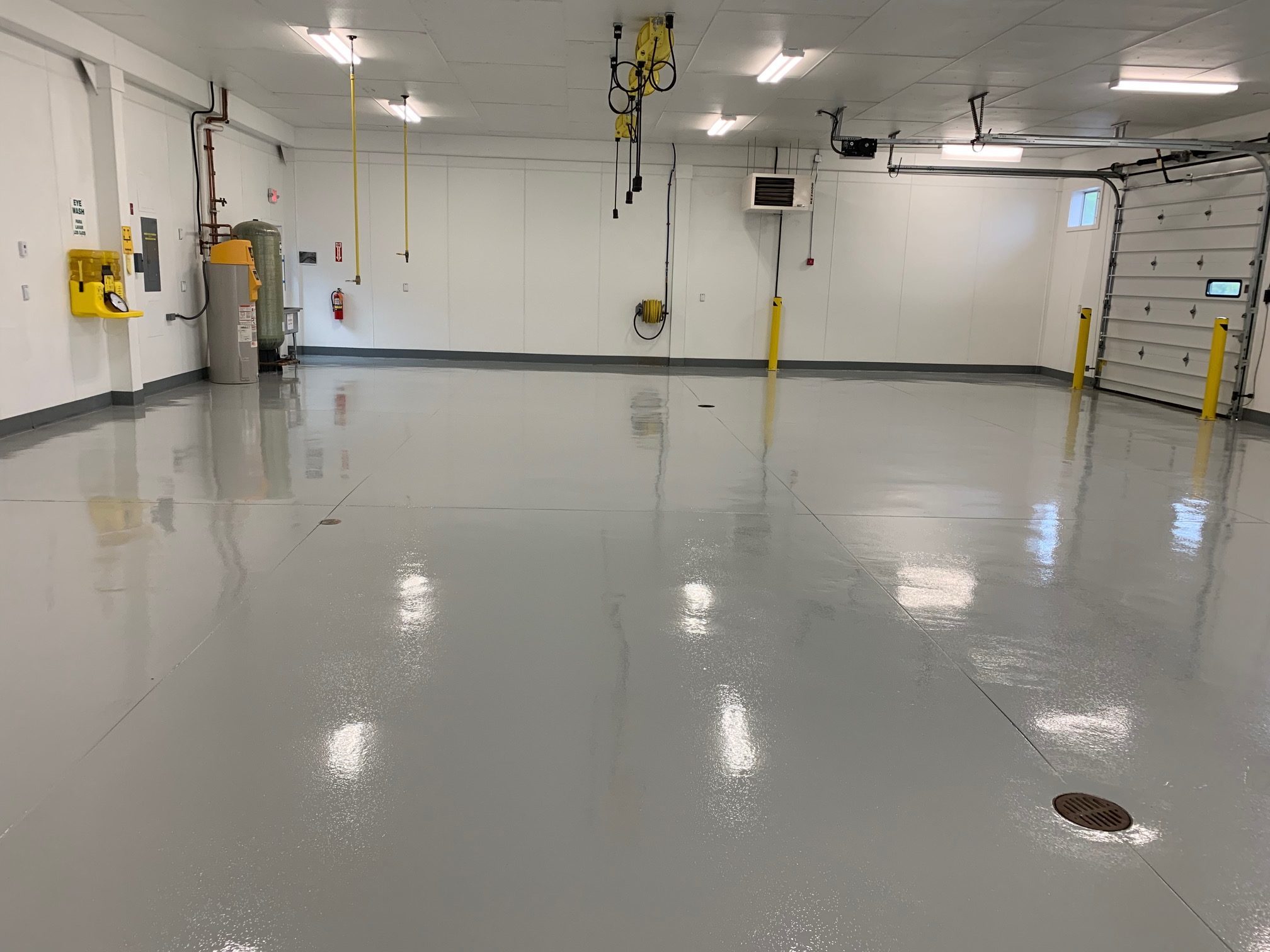Choosing the Right Floor Paint for Your Garage

When it comes to painting your home, the garage floor may not be the first thing that springs to mind. Still, coating your garage floor offers benefits to you as a homeowner, including controlling dust, resisting dirt and stains, and improving the appearance of your garage. Typically, an acrylic or epoxy flooring is used for this application, but not all garage floor coverings are created equal. Here’s what you should know about the two types.
Acrylic Floor Paints
Acrylic paints are made from small amounts of acrylic resin that have been dissolved in solvents such as mineral spirits or xylene. These solvents are harmful not only to humans but also to the environment. There are aqueous solvents that are safer to use, there are still other drawbacks to using acrylic coatings for your garage floor:
- Peels off easily: Acrylic paint doesn’t hold up well to heavy pedestrian or vehicle traffic.
- Sticks to tires: Higher temperatures (generated from a running vehicle) cause acrylic paint to adhere to tires.
- Not resistant to some materials: Oils, acids, and alkaline spills easily destroy the finish of acrylics.
Besides basic dust prevention and improving the appearance of concrete or cement screed, acrylic paints don’t offer much to your garage floor.
Epoxy Floor Paints
Epoxy flooring is available in three options, solvent-based, solvent-free, and aqueous. While solvent-based varieties should be avoided because of harmful hydrocarbons, you can use solvent-free or water-based alternatives. Solvent-free options are made of 100% solids and environmentally friendly ingredients. Aqueous alternatives use water as a solvent, making them safer choices than solvent-based paints. Epoxy floor paints are also more durable than their acrylic counterparts, standing up to regular foot and vehicle traffic while also resisting grease and other spills.
When it comes to your garage floors, the choice is clear. In addition to being chemical-free and tougher, epoxy flooring provides a hard surface, similar to that of fiberglass. The result is a much-improved garage floor that is safer for you and your household, and longer-lasting.
